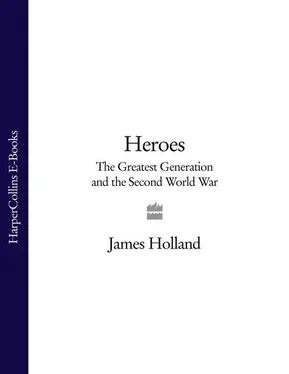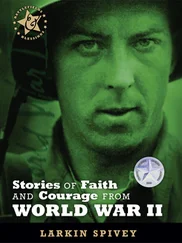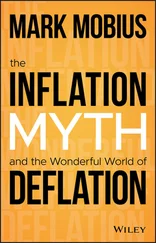Bill still hadn’t given up complete hope for his brother, and when the war was finally over, he went back down to the south coast to meet the POWs coming back. ‘I talked to lots of them – some I even knew. I wanted to check whether anyone had heard anything about my brother’s crew.’ They hadn’t. By the time he finally returned home to Vancouver, he had become ‘300 per cent certain’ his brother had gone down into the sea that night. ‘You’ve got to have hope and your mind rolls over all kinds of possibilities, but eventually…’ George’s navigator came from British Columbia too. He’d been married with a couple of kids and his father came down to see Bill. He wanted to know whether there was any chance that his son was still alive. ‘And even though you want to give them hope, I said no. No way.’
It was, he admitted, a hard thing to say, but added, ‘Well, wars make you hard. I used to take care of the chart that listed the crews. When the guys got shot down it was my job to take them off and put a new name on there. The first time I rubbed a guy’s name off – gee whiz, it hurt me. He’s gone. Shot down. No more. But after a while I was just going through the motions. I’m telling you: people get hard.’
We looked through Bill’s old photographs. There were a number of him and George together from their flying training days. It’s uncanny, but they really did look identical. Same smile, same eyes, same hair. You could see why any girl would have fallen for them. There was his citation for his DFC, and old newspaper cuttings, too. Local newspapers often proudly reported the progress of their gallant sons and the Byers’s corner of Vancouver was no exception. One piece was about them joining 429 Squadron together. ‘When they arrived on the squadron, the boys craved action. They got it. Within 24 hours they were off on their first operation. “We sure are glad we have been able to stay together,” said Bill.’
Bill still thinks a lot about George. ‘I wonder what kind of life I would’ve had if he’d been here. He was the only brother I had and we were so close, you know.’ And what about the war? Do you still think about it a lot? I asked. He paused a moment and said, ‘The war seems like a dream now. After the war, nobody talked about anything – it wasn’t until about ten years after that you started to get some books on it, but it takes thirty or forty years before a person wants to tell his experiences or say anything about it and then it relieves him somewhat.’ He paused again. ‘It makes it easier as time goes on; your mind gets a little more reasonable with it. I don’t mind talking about it now. Time heals. In a way it’s better to share it with somebody. It helps you.’ Another pause and Bill looked at some distant spot on the wall. ‘I think it does anyway.’
Конец ознакомительного фрагмента.
Текст предоставлен ООО «ЛитРес».
Прочитайте эту книгу целиком, купив полную легальную версию на ЛитРес.
Безопасно оплатить книгу можно банковской картой Visa, MasterCard, Maestro, со счета мобильного телефона, с платежного терминала, в салоне МТС или Связной, через PayPal, WebMoney, Яндекс.Деньги, QIWI Кошелек, бонусными картами или другим удобным Вам способом.












